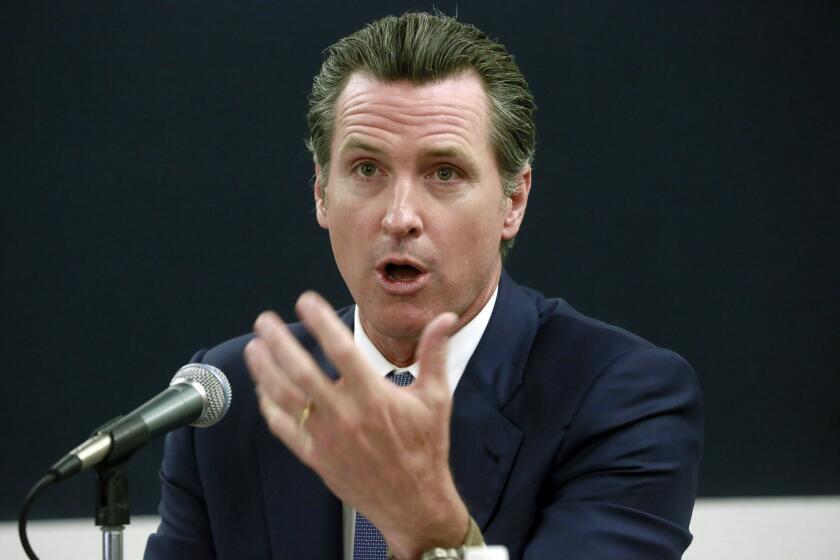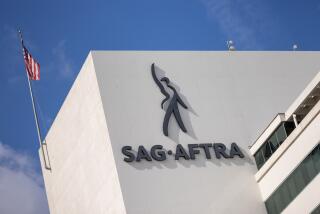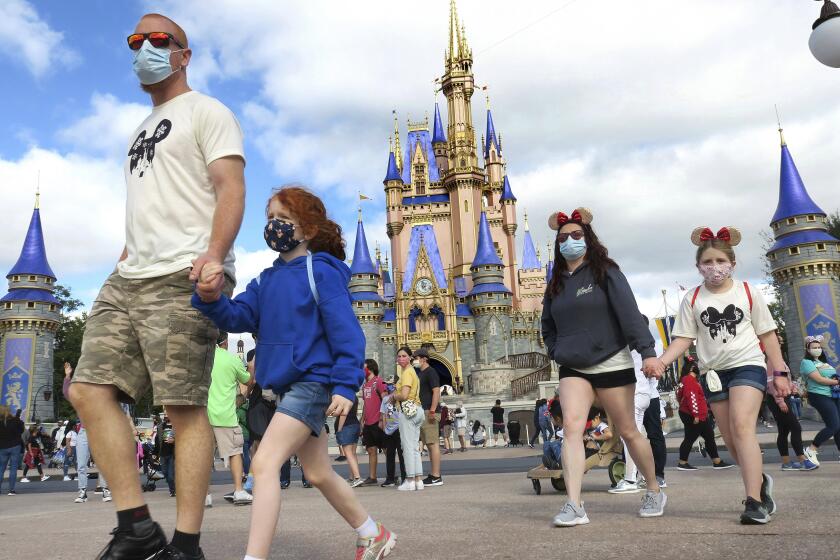Camera tricks, actor barriers and no fruit platters: Georgia’s recommendations for film sets
- Share via
No more open calls for casting, clear barriers between actors and an end to self-service fruit platters.
Those are among the recommendations to film crews that Georgia Gov. Brian Kemp released Friday in the first statewide COVID-19 health and safety guidance for the film industry there. The 11-page document was developed in cooperation with studio and production companies in Georgia and can be used alongside industry-wide labor and management protocols as they are developed, the state said in a statement Friday.
Filmmakers and TV creators are closely watching what is happening in Georgia, which is one of the biggest hubs for production in the U.S. and one of the first to reopen amid the coronavirus pandemic. It is home to some of Hollywood’s biggest film franchises, including Walt Disney’s Marvel movies, as well as popular TV shows such as Netflix’s “Stranger Things.” It gives an insight into how film sets will need to change for the future.
“Every element of what has made Georgia such a unique place for film — landscapes, production facilities, a skilled and growing workforce, with a pipeline of new labor thanks to the Georgia Film Academy and our College and Career Academies — are still in place, just as they were before this global pandemic,” Kemp said in a statement.
Tyler Perry is among the first Georgia producers likely to start filming. Perry is planning to start a film shoot at his Georgia-based studios on July 8.
The entertainment industry has become a vital source of jobs in Georgia. The 391 film and television productions from fiscal year 2019 represented a new high for the state; in that period, $2.9 billion was spent locally, supporting 3,040 motion picture and television industry businesses, and generating $9.2 billion in total wages, the state said.
The move comes as California Gov. Gavin Newsom planned to release state guidance for counties looking to restart filming. After months of being without work, many in the film and television industry are keen to restart shoots and reopen theaters, although many others remain concerned about ongoing uncertainty about the virus spread.
One of the challenges unions and other officials have encountered is a patchwork of protocols that have been put out by producers, organizations and different countries around the world. Studios are already facing the prospect of increased costs as a result of the need for additional sanitation.
Governor Newsom plans to release guidelines for the restart of filming in Hollywood from next week has some happy to return to work and some scared
Beyond the instruction for frequent hand washing, increased disinfection and sanitation of equipment and the use of personal protective equipment, the instructions ask for call sheets and contracts to be circulated digitally rather than on paper.
No more hugs, kissing or handshakes among the cast and crew, who will also have their temperature tested daily. Casting should be done remotely if possible; if not, actors should be given specific arrival times and told to wait in their cars for their appointments.
Among the suggestions for talent: Actors should wear masks until they need to shoot, and clear barriers, which can be removed at the last minute, should be set up between cast members until it’s time to begin filming.
The production will have to keep records of the interactions between actors if distance cannot be maintained between them.
The guidelines would affect even the camera angles chosen, with the guidelines suggesting alternate shot setups and lenses to allow for greater distance between actors. It suggests using actors from the same household, which will be a boon for any actor families in Hollywood.
It also suggests reducing the number of background actors.
Craft services should provide individual, prepackaged portions only. There is guidance for every part of a production, from the art department to sound and electric.
As detailed as these guidelines seem, it’s unclear whether they are enough for unions to allow their members to work on Georgia sets. SAG-AFTRA has asked its 160,000 members to seek the union’s approval before taking on new jobs during the health crisis.
More to Read
Inside the business of entertainment
The Wide Shot brings you news, analysis and insights on everything from streaming wars to production — and what it all means for the future.
You may occasionally receive promotional content from the Los Angeles Times.












